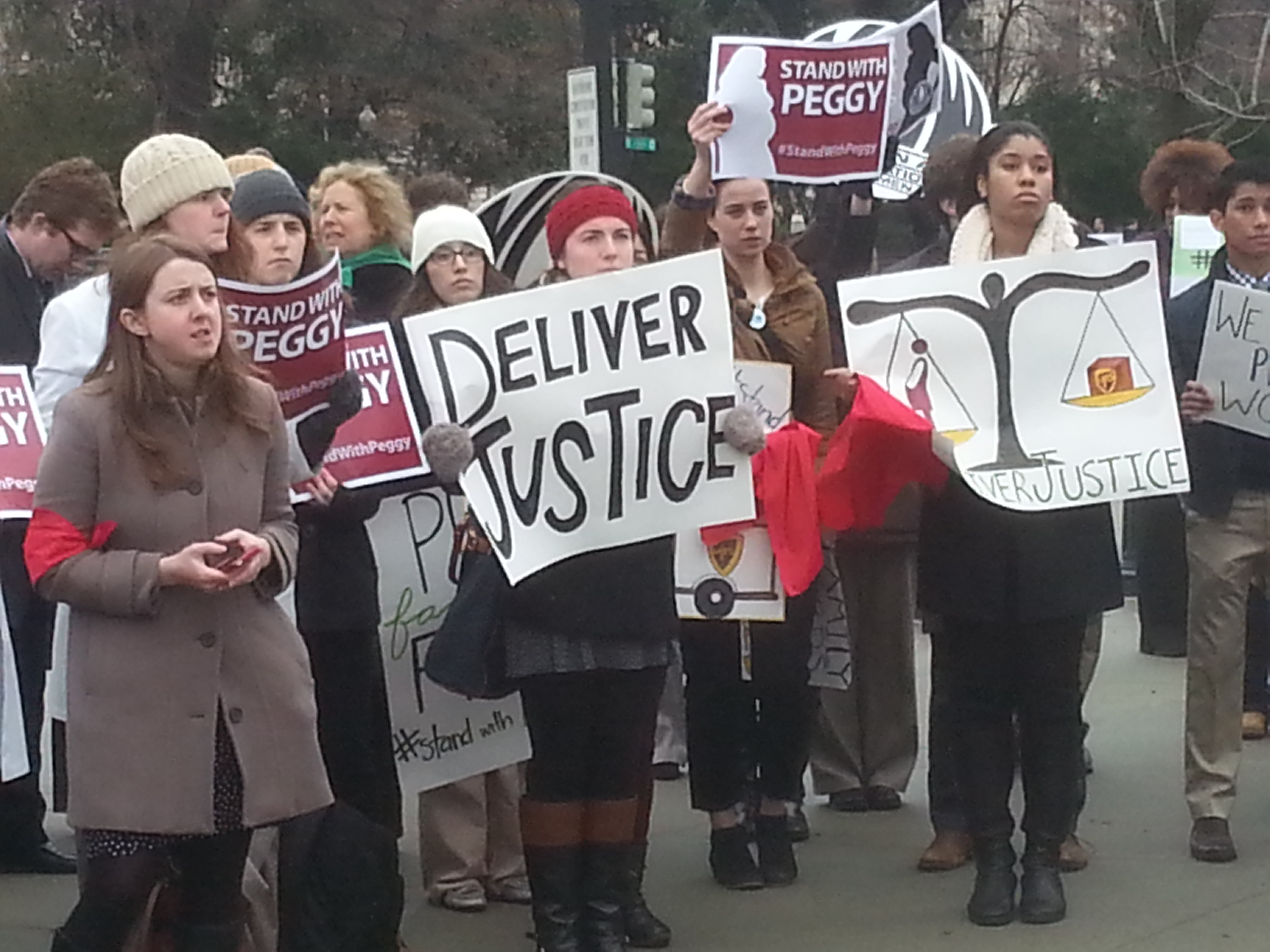WASHINGTON — The Supreme Court heard arguments Wednesday in a case that could change how pregnant workers are accommodated on the job.
The justices considered the case of Peggy Young, a United Parcel Service driver from Landover, Md., who became pregnant in 2006 and was told by her doctor that she could not lift heavy packages during her pregnancy. When her managers said she could not continue working with the lifting restrictions and refused her request to be temporarily placed on light duty, she took unpaid leave until after the birth of her daughter.
Young’s lawyer, Samuel Bagenstos, told the high court that her treatment violated the 1978 Pregnancy Discrimination Act provisions that say, “Women affected by pregnancy, childbirth or related medical conditions shall be treated the same for all employment-related purposes, including receipt of benefits under fringe benefit programs, as other persons not so affected but similar in their ability or inability to work.”
But lawyers for UPS contended that the company’s decision was not discriminatory. They argued that the UPS policy only differentiates between workers who suffer on-the-job injuries or conditions and those who are injured off the clock. Pregnant women are treated no differently than any other employee who suffers an off-the-job injury or condition.
Bagenstos disputed that argument, saying UPS drivers who lost their driving privileges while on their own time were assigned to desk duty.
Justice Antonin Scalia was skeptical of Bagenstos’ arguments, saying that ignoring the test of whether an injury occurred on the job might entitle pregnant women to benefits they wouldn’t normally receive, such as being driven to work like senior executives.
“What you are seeking is equivalent to most favored nation status,” Scalia said.
Justices Elena Kagan and Ruth Bader Ginsburg seemed to show the most sympathy for Young’s arguments, grilling UPS lawyer Caitlin Halligan.
“Justice Scalia says this is about most favored nation status. Your [position] is least favored nation,” Ginsburg said.
Kagan told Halligan: “What you are saying is that there’s a policy that accommodates some workers but puts all pregnant women on one side of the line.”
The case is set to be decided in June. While UPS maintains that it did not discriminate against Young, the company has announced that it would change the accommodations it provides for pregnant women starting in January.

